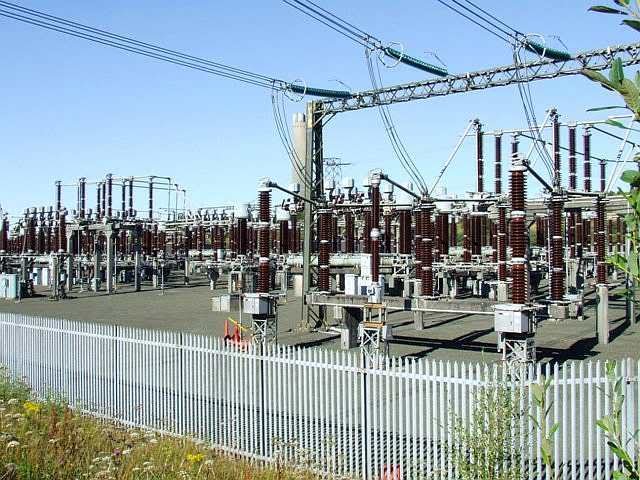
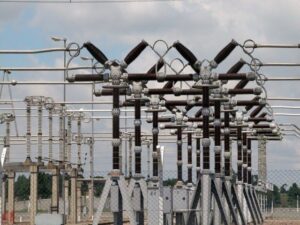
By allcitynews.ng
Nine years after privatisation of Power Holding Company of Nigeria (PHCN), and with over N1.7 trillion spent so far by Federal Government to sustain the privatised company which is not yielding expected turnaround, stakeholders have again called for cancellation of the privatised PHCN.
The fresh attempt to recreate the awareness in minds of Nigerians and perhaps hold concerned people and corporate bodies accountable, allcitynews.ng decided to look into the failed promise of turnaround of public utilities.
It should no longer be news that in November, 2013, Federal Government handed over the Power Holding Company of Nigeria (PHCN) to the new investors.
Since that time hitherto, stakeholders, especially trade unionists, civil society organisations and individuals
have been calling for review either to cancel or redefine the privatisation guidelines.
All the stakeholders agreed that the processes surrounding the privatisation failed to follow due process.
They admitted that if properly done, privatisation would have opened doors for more jobs, wealth and even make things work for the betterment of all.
They cited Federal Government having no business in doing business as their reason for their support.
To them, what is required of government is to create enably environment for business to prosper.
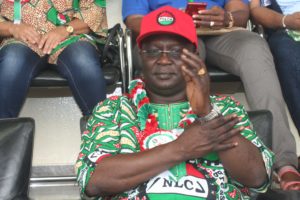
NLC view on it
In his statements, the President, Nigeria Labour Congress (NLC) Comrade Ayuba Wabba who has been using every forum to talk on it, agreed that the idea of privatisation is not working because the whole exercises were done in shoddy manner and were handed over to wrong hands who came mainly to milk the people dry with their increase tariffs.
While speaking with Labour Writers Association of Nigeria (LAWAN), Wabba stressed, “But the problem was selling public utilities to wrong hands. The entire privatisation of PHCN and other privatised companies were done in questionable manner and they were handed over to wrong hands who have no genuine reason than making profit for buying over the PHCN.”
Wabba who is always preaching at any given opportunity against the failure of the investors usually lament the state of the company.
“Since the privatisation of electricity distribution, Nigerians are yet to see the fulfillment of the promise of efficient service delivery. Instead, the electricity situation has gone worse with chronic failures by DisCos to supply prepaid meters, exploitation of Nigerians through estimated billings and reluctance to attend to basic complaints.
“We call on the government to reverse the power sector privatisation because it has failed. The privatisation of public utilities has not generally proven to be the correct thing to do in most countries, even developed ones; according to a study released by Public Services International.”
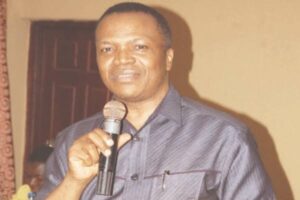
SSAEAC statement
Dissatisfied with the performance index of electricity companies in the country, the Senior Staff Association of Electricity and Allied Company (SSAEAC) urged the Federal Government to re-examine the privatisation agreement of the nation’s power sector.
SSAEAC President General, Comrade (Dr) Chris Okonkwo, who made the call at an interactive session with Labour Writers Association of Nigeria (LAWAN) in Lagos, decried what he called the dwindling fortunes of the sector after the private sector took over on Nov. 1, 2013.
Similarly, PG while speaking in April 2019 during in Enugu called for review and sanction of violators on electricity privatisation in the country.
Speaking on the theme: ‘Privatisation and unionism, Nigeria Power Sector Experience’ he told the participants at 4th Triennial Delegates Conference held in Enugu 2019 that the position of the senior staff association was that there should be a review on privatisation because they were given contracts but they did not abide by the contract.
He urged the Federal Government to review the document on power privatisation to see if it had been violated and sanctioned those who had violated it and reward those who had not.
The President General said basically, privatisation was seen as transferring of public facilities to private hands and incidentally those private were business with negative mindset.
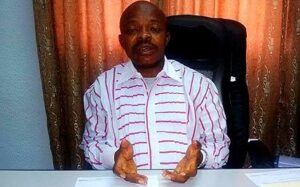
NUEE
On his part, the General Secretary, National Union of Electricity Employees (NUEE), Comrade Joe Ajaero said what happened in the power sector was not privatisation, but a balkanisation because it was skewed to benefit the government’s cronies.
Ajaero who also is the Deputy President, Nigeria Labour Congress (NLC) while addressing LAWAN, some time in 2021, lamented the sorry state of the whole exercise, saying the process was a flooded with fraud.
He demanded to know why the same government which sold the company
would pump N1.7 trillion in five years into such a privatised sector.
Furthermore Ajaero said “genuine private owners can build and thrive side-by-side public ownership, as we have with NESCO in Jos, which has been generating, transmitting and distributing power since 1929.”
For building power plants and planning to sell them to the private sector for N400 billion, Ajaero described the Federal Government as a contractor.
Wondering while the same government which in 10 years, refused to spend anything to put NEPA to standard and proper position would then turn around to release N1.7 trillion into the same company after privatisation.
“10 years before privatisation, the government did not spend anything to shore up NEPA “that was producing 4,000Mw; inefficient but low tariff.
“However, in five years, after privatisation, the government has given them N1.7 trillion and at a time was subsidising with N1.7 billion daily.
“This is a sector that is stuck at that same megawatts, but has increased tariff five times.”
He said if NEPA had been allowed to exist with its 4,000Mw production, the about 25 licensed private body could add about 3,000Mw in a sane environment.
“Now NEPA is split into 18 firms, shared among friends, and we are still stuck at 4,000Mw, making Nigerians pay for the greed of a few.”

PENGASSAN’s view
On his own, the President, Petroleum and Natural Gas Senior Stafd Association of Nigeria (PENGASSAN), Comrade (Engr Festus Osifo) while also addressing Labour Writers Association of Nigeria (LAWAN) on Wednesday 23 March 2022, called for review of the PHCN privatisation said “It is so sad that years after the unbundling of the PHCN, Nigerians are yet to feel the impact of the legions of companies created out of it. Instead, the citizens are subjected to serial grid collapse and total blackout.
“We hereby call on Federal Government to immediately review the privatisation of power generating companies that was carried out in 2013 as the operating companies have become more of burden than solution to the nation.”
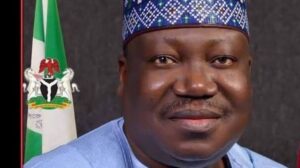
Senate’s President view
Few months ago, the Senate President, Ahmed Lawan, during the deliberation of a motion on Nigeria’s power sector recovery plan, and the impact of the COVID-19 pandemic, said that power sector privatisation has failed, and called for its review.
Lawal’s comment came in the wake of massive public outcry over the inefficiency of the power sector to provide electricity to Nigerians since it was privatised in November 2013,
Decrying the sorry state of the privatisation, Senate President, Ahmed Lawan, during one of his meetings said
“If we leave them for the next 10 years there would be no power in Nigeria… We gave them our common patrimony and they still come back as DisCos and GenCos to look for money from the public. I think it’s time for Nigeria to consider reversing the privatisation of the power sector or they should just cancel the entire privatisation process completely.
“The privatisation has so far not been successful. We expected efficiency, effectiveness in power supplies but probably on both sides, maybe the purchase agreements were not adhered to on both sides. What is obvious is that the DisCos particularly have no capacity at the moment to supply us power. The GenCos have challenges too. It is not good that we give them money – these are businesses. If there are areas we must intervene as a government it must be seriously justified.”
Owners of the Discos, Gencos
Here are the owners of the 14 DISCOS under President Goodluck Jonathan regime. Since then hitherto, the expected turnaround is yet to manifest despite the huge sums pumped into it by FG.
Surprisingly, a man, Mr Z, that sold a house to Mr K is still spending huge sums of money to maintain the house he sold to Mr K.
Owners of Electricity Assets in Nigeria (including the money they paid to the GEJ government)
1. Transcorp/Woodrock Consortium (Ughelli Power Plant) Mr. Tony Elumelu, Mr. Obinna Ufudo (CEO, Transcorp Group) Mr. Adeoye Fadeyibi $300 million :Power Generation
2. Amperion Power Distribution Limited (Geregu Power Plant) Mr. Femi Otedola (Chairman, Forte Oil), Mr. Akin Akinfemiwa (CEO, Forte Oil) $132 million Power Generation
3. Mainstream Energy Solutions Limited (Kainji Hydro Electric Plant and Jebba Hydro Station) Col. Sani Bello (Chairman, Mainstream), Alhaji Ismaila Isa (Vice Chairman, Mainstream), Brig Gen. Tunde Ogbeha (Director, Mainstream) $170 million Power Generation
4. North South Power Company Limited (Shiroro Power Station) Eng. Olubunmi Peters $111.7 million Power Generation
5. KEPCO Energy Resources Limited (Egbin Power Station) Mr. Tonye Cole (CEO, Sahara Energy Group), Mr. Tope Shonubi $407.3 million Power Generation
6. NEDC/KEPCO Consortium Asset: Ikeja Electricity Distribution Company Cost: $131 million Mr. Kola Adesina (Chairman NEDC/KEPCO), Mr. Tonye Cole (CEO, Sahara Energy Group), Mr. Tope Shonubi (Executive Director, Sahara Energy Group) $131 million DISCO
7. Vigeo Power Limited Asset: Benin Electricity Distribution Company Mr. Victor Gbolade Osibodu (Chairman, Vigeo Holdings) Mrs. Funke Osibodu (CEO, Vigeo Power) $129 million DISCO
8. KANN Utility Consortium Company Limited Asset: Abuja Electricity Distribution Company Alhaji Shehu Malami (Chairman, KANN Consortium), Mr. Neil Croucher (CEO, KANN Consortium) $164 million DISCO
9. Sahelian Power SPV Limited Asset: Kano Electricity Distribution Company Alhaji Yusuf Hamisu Abubakar (CEO, Sahelian Power), Alhaji Umaru Mutallab (Chairman, Sahelian Power) $102 million DISCO
10. 4Power Consortium Limited Asset: Port Harcourt Electricity Distribution Company Mr. Augustine Nwokocha (Chairman, 4Power Consortium), Governors of Bayelsa, Cross River, Akwa Ibom and Rivers State $124 million DISCO
11. Integrated Energy Distributing and Marketing Limited Asset: Ibadan Electricity Distribution Company, Yola Electricity Distribution Company Gen. Abdulsalami Abubakar (Chairman, Integrated Energy), Mr. Tunde Ayeni (Vice Chairman, Integrated Energy), Dr. Sola Ayandele (CEO Integrated Energy) $126.75 million DISCO
12. Interstate Electrics Limited Asset: Enugu Electricity Distribution Company Sir Emeka Offor (Chairman, Interstate Electrics Limited) 107.4 million DISCO
13. West Power and Gas Limited Asset: Eko Electricity Distribution Company Mr. Charles Momoh (Chairman, West Power and Gas), Dr. Tunji Olowolafe (Director, West Power and Gas), Mr. Ernest Orji (Director, West Power and Gas) $135 million DISCO
14. Aura Energy Limited Asset: Jos Electricity Distribution Company Alhaji Garba Mohammed Noma, $82 million DISCO Reliable information disclosed all the generation Companies (GenCos) were using diesel to generate power and now that diesel has gone out of the reach of average users.
Advertise or Publish a Story on allcitynews.ng: Kindly contact us at ojezand@yahoo.com. Have breaking story! Please send such with pictorial evidence to the above email. Thank you.
Disclaimer:
Comments expressed here do not reflect the opinions of allcitynews.ng or any employee thereof. It assumes no responsibility or liability for any errors or omissions in the comments

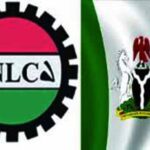







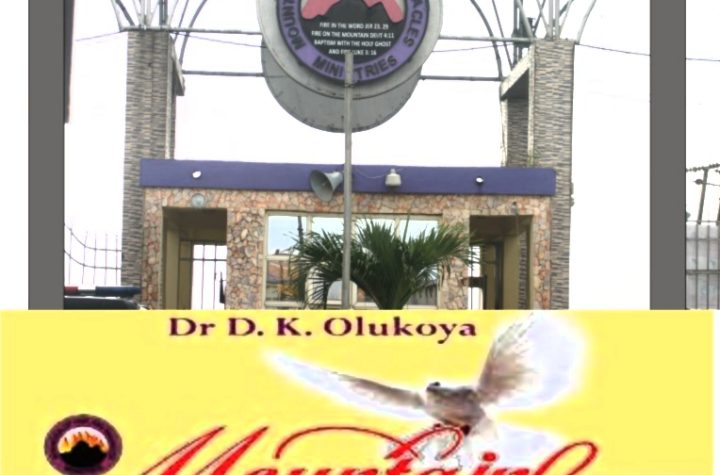

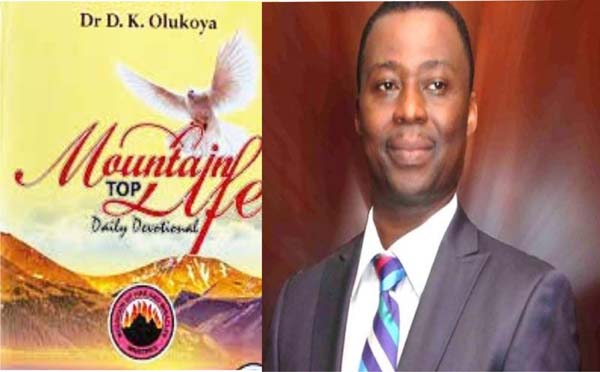

More Stories
Iron Rod & Steel Distributors Employers Union, indicts SON over substandard products
Amidst hardship, unemployment, National Association of Herbal Medicine Employer (NAHME) creates 1500 direct jobs
Nigerian workers have right to report employers over default of CPS payment-PenCom